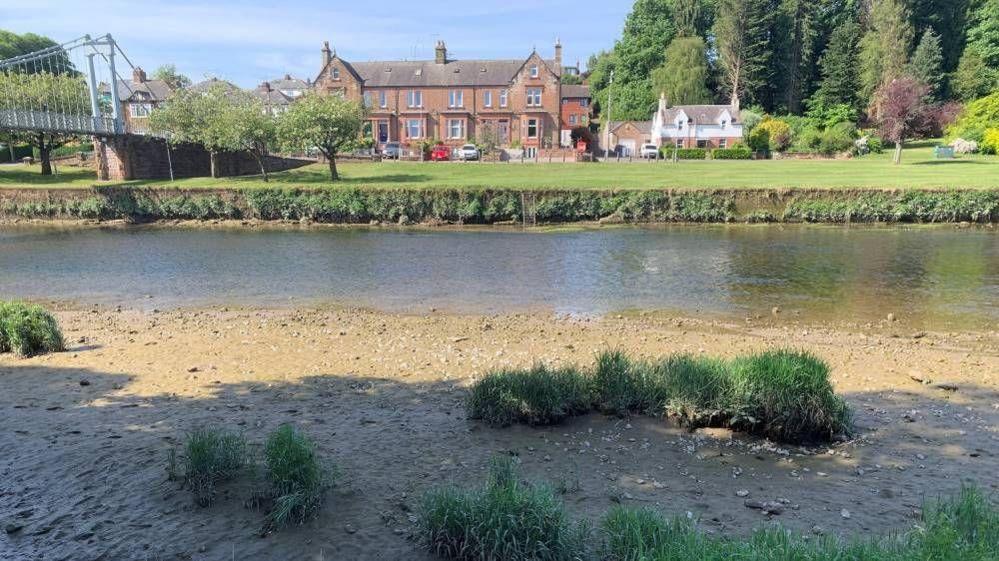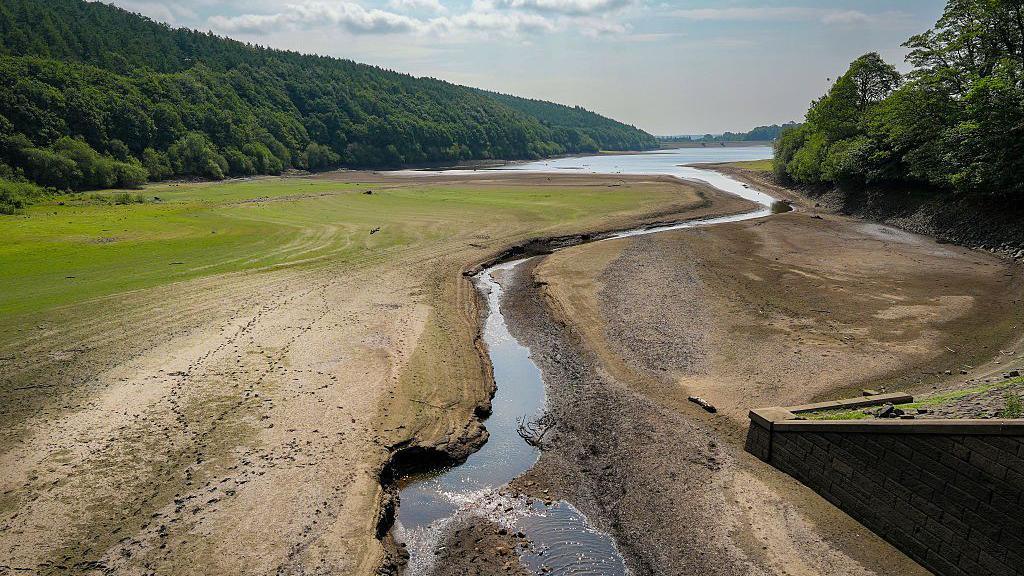Water savings call as dry August hits reservoir levels

RIver levels fell sharply in parts of the country in May
- Published
Scots are being urged to cut down the amount of water they use as reservoir levels across the country drop below normal levels.
A drier than average August means water levels in the east of the country are almost a quarter lower than they should be at this time of year.
Scottish Water is using tankers to supplement normal supplies in some areas and is looking at ways of pumping extra water into affected reservoirs.
The company said with no significant rainfall forecast for the rest of the month "it's important that everyone helps".
A similar call was made in May after Scotland experienced its driest spring in 70 years.
The current dry spell means:
Average reservoir levels across Scotland are down 2% to 73%, which is 9% lower than the average of 82% for this time of year.
In the east of Scotland, average reservoir levels are down 1% to 57%, which is 24% below the average of 81% for this time of year.
The prolonged spell of warm, dry weather has seen demand increase by 100m litres per day.
Several rivers close to having critically low water levels
- Published15 August
The new warning comes just a week after the Scottish Environment Protection Agency (Sepa) said a number of rivers and estuaries in the east of Scotland were approaching critical levels of water scarcity.
In the third such warning of 2025, the River Don and the Firth of Tay were among six areas described as experiencing "moderate" scarcity and quickly approaching "significant" scarcity.
Other rivers, including the Spey and Forth, are also being monitored.
What does the water warning mean for me?
The latest Scottish Water warning comes with suggestions on how people can help secure supplies. These are:
Using water efficiently in the garden and outdoors spaces by using a watering can instead of a garden hose where possible and avoiding using sprinklers
Taking shorter showers
Turning the tap off when brushing teeth
Using washing machines and dishwashers only when fully loaded
Using a bucket and sponge rather than a hose to wash the car
Checking for and repairing any leaking toilets
John Griffen, Scottish Water's water operations general manager, said staff were "working hard to maintain normal supplies" for customers but needed people to be more efficient in their water use.
"We believe that a large part of the additional water use at the moment is in gardens so we would ask that customers are mindful of how much water they use there," he said.
"Any rainfall we have had in parts of the country recently has not been prolonged enough to help our resources recover from the long spells of dry weather we have had recently and earlier this year.
"And, with no significant rain forecast for the next week or more, it's important that everyone helps," he added.
Warning of high risk of wildfires
Meanwhile, the Scottish Fire and Rescue Service (SFRS) has issued a very high risk of wildfire warning.
The service is calling on the public to avoid the use of naked flames outdoors, including campfires and barbecues.
The warning covers the whole of the country until Monday and central and eastern Scotland until Tuesday.
Low lying areas with green grass are at low-risk but the fire service said the public should remain vigilant nonetheless.
Wildfires can burn for several days at a time and a recent blaze at Arthur's Seat in Edinburgh took more than a week to fully extinguish.
SFRS group commander Mark Landels said the summer had been especially dry.
"In dry conditions, even a small fire from a discarded cigarette or an unattended campfire has the potential to quickly grow out of control," he said.
"The vast majority of wildfires are started by human behaviour, so acting responsibly can lower the chance of a fire starting in the first place.
"It is critical that people act safely and responsibly at all times and always follow the Scottish Outdoor Access Code."
- Published20 August
